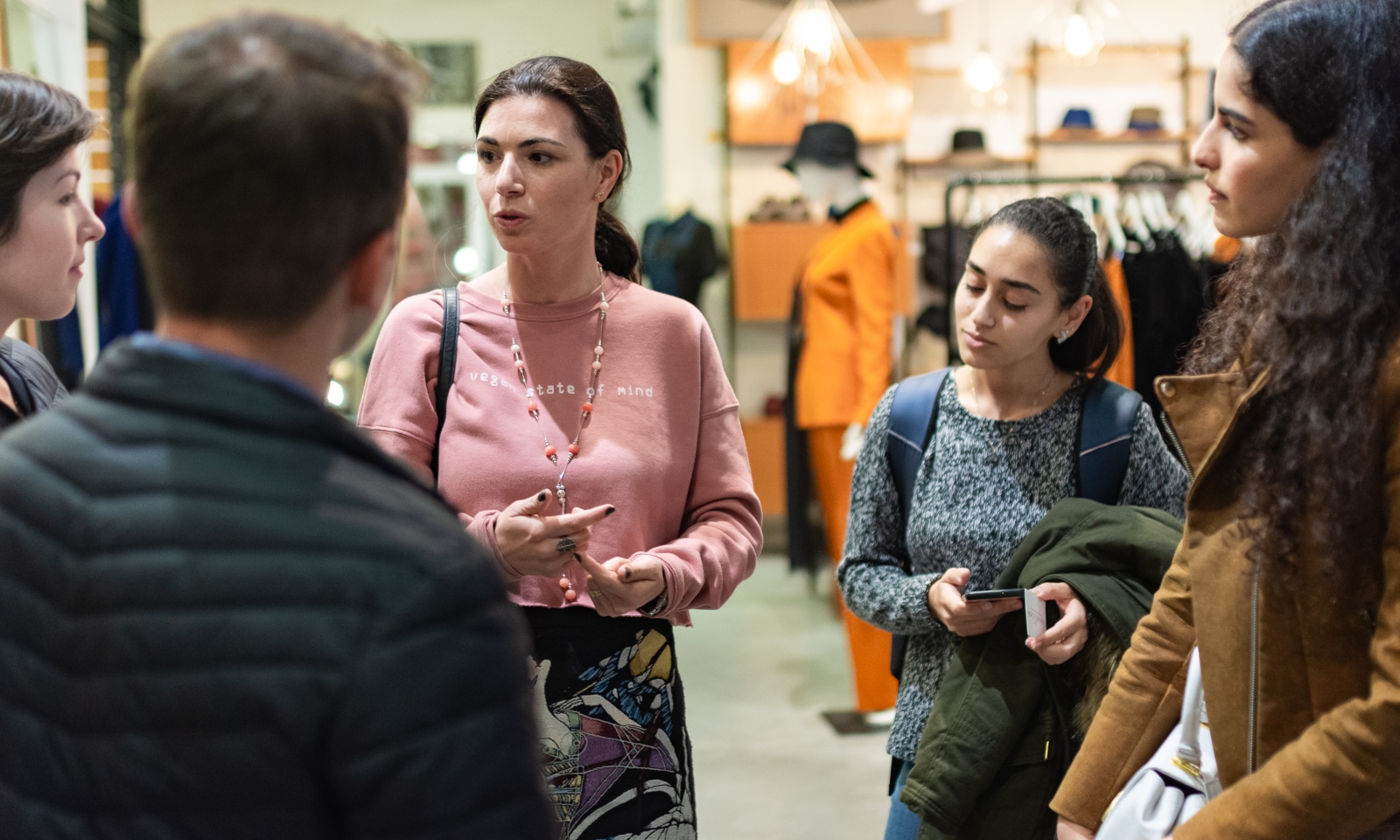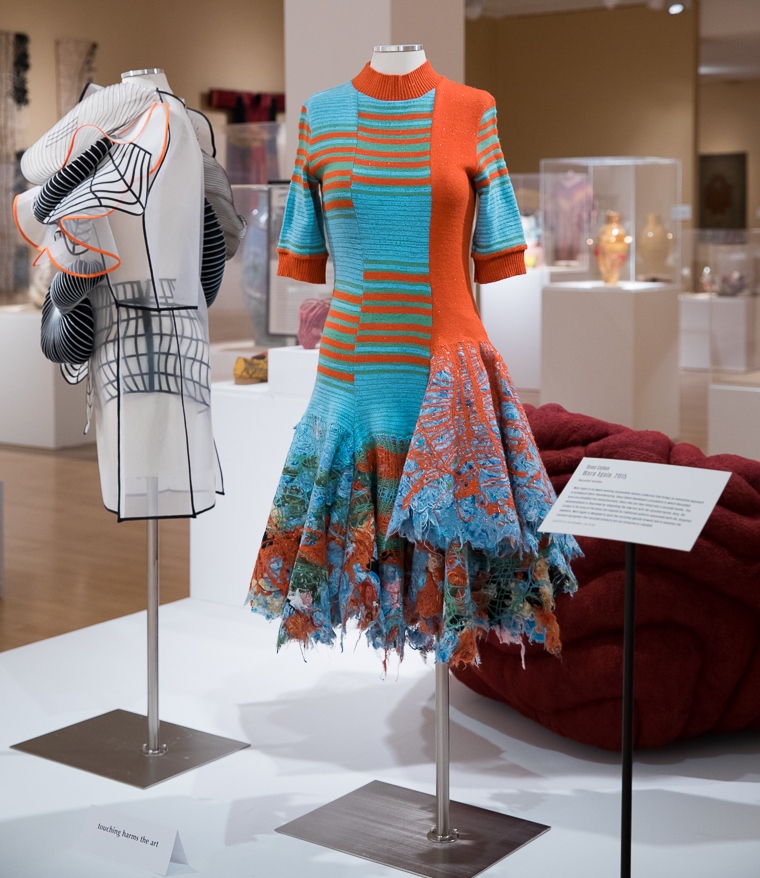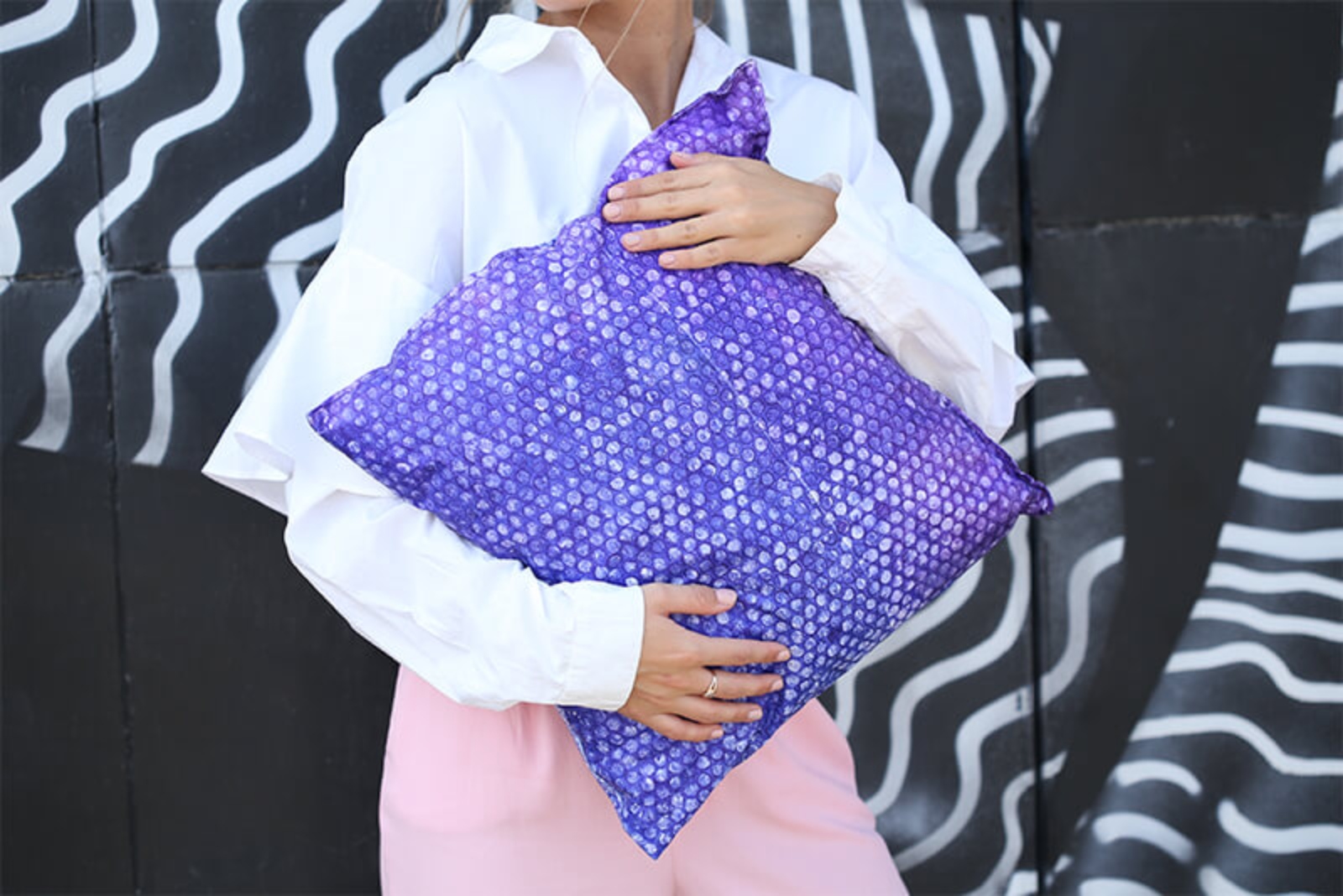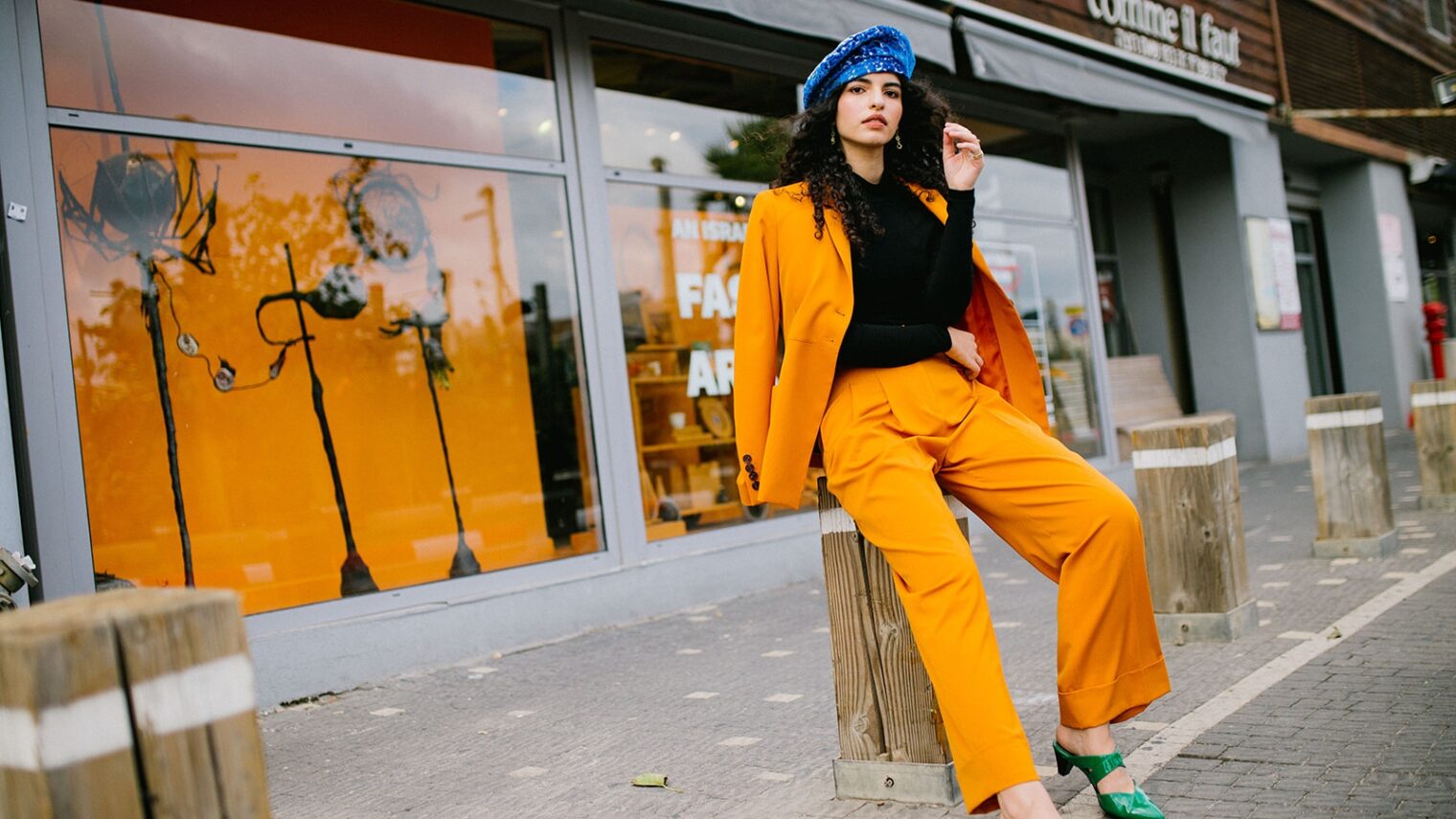Did you know that the average American wears a t-shirt seven times before discarding it?
Or that megaretailers like Burberry, Nike, Eddie Bauer and Urban Outfitters have regularly burned or shredded unsold merchandise worth millions of dollars?
Overconsumption and overproduction: Those are two main reasons why the textile industry is the second biggest polluter (after big oil). And the dizzying pace of supply and demand leads to widespread exploitation of garment workers.
Antidotes to the toxic textile trade include minimizing waste of materials, energy and natural resources; fair labor practices; and smaller production runs encouraging “slow fashion” over “fast fashion.”
ISRAEL21c looks at innovative Israeli trendsetters, designers and technologies pushing the envelope on these approaches.
Re-Fresh
Two Israeli fashionistas recently soft-launched Re-Fresh.
This open platform for researchers and designers supports sustainable fashion startups and helps existing textile and fashion companies transition into sustainable design, manufacturing and business practices.
“Sustainability in the fashion industry can create new revenues while doing good by working in a completely different way,” says Re-Fresh cofounder Viktoria Kanar, head of GeekChicTLV, a Tel Aviv-based production company that specializes in conceptual fashion events and promotes innovative sustainability solutions.
Kanar is a consultant for the Israel Export Institute and is active in the Israeli branch of the global Fashion Revolution movement sparked by the deadly collapse of a Bangladesh garment sweatshop in 2013.
At the inaugural Israeli Fashion Revolution Day, held in May 2017 at Tel Aviv University’s Porter School of Environmental Studies, GeekChicTLV produced a fashion show introducing Israeli sustainable designers such as Textilemann by Shay Schneiderman, Two Neighbors and Mauricio Pollacsek and a collaboration between Kornit Digital (more on that below) and swimsuit designer Gideon Oberson.
Last December, she produced the Tel Aviv leg of the first global pop-up event sponsored by the Los Angeles-based F.A.K.E. (Fashion for Animal Kingdom and Environment) Movement promoting vegan and ethical designers.

Re-Fresh cofounder Revital Nadiv heads up Re-Vision, a consultancy helping fashion and textile companies implement sustainable innovations in design, waste management and manufacturing processes. She teaches at various Israeli design academies.
“This industry has been sleeping too long and now we don’t have a choice because resources are dying,” Nadiv tells ISRAEL21c. “We have found a lot of new innovative disruptive products and materials that can drive ROI [return on investment] for clients.”
Trashion is in fashion

One type of disruptive material is textiles made from trash, including discarded clothing. Re-Fresh found that less than half of used clothes are collected for reuse or recycling, and only 1% are upcycled into new clothes.
Now the concept of “trashion” is gaining traction.
Israeli fashion designer Dana Cohen made an award-winning “Worn Again” collection using fabrics she created from garments salvaged out of discarded clothing bins.
Elinor Nathaniel, founder of Remeant, turns discarded bubble wrap and industrial polyethylene scraps from two Israeli factories into fabrics for items such as bags and wallets.

“We also want to do clothes, shoes and outdoor furniture because the fabric is water resistant,” Nathaniel tells ISRAEL21c from her studio in Ramat Hasharon.
With support from the Israel Innovation Authority, Remeant has started setting up an industrial process in a factory and is raising additional funds to complete it.
Fashion on demand
Adi-Lee Cohen, 30, launched Tel Aviv-based AnyWear on-demand fashion platform 18 months ago. She’s already making waves in New York City.
“When I was a child, I had only six dresses. Now girls have at least 30 dresses. All this mass production harms the environment. I wanted to restore the value of garments made by a seamstress and handed down from generation to generation, using modern technology and producing only on demand,” Cohen tells ISRAEL21c.
With mentalist Lior Suchard as investor and cofounder, Cohen created a virtual reality website where customers can design apparel in six clicks and receive it in 17 business days (or 10 express).
Sewn at factories in Jordan and Israel using digital technology, each piece is branded with the customer’s name – a personalized perk that has helped cut returns to 2%, compared with 50% for the average clothing e-tailer. (That’s a huge amount, since apparel is the #1 category for online shopping.)

Cohen recently appeared on “Good Day New York,” as co-anchors Rosanna Scotto and Lori Stokes and modeled outfits they designed on AnyWear.
Cohen was a finalist in a startup competition at New York University and is collaborating with 15 Fashion Institute of Technology students designing limited collections on AnyWear for sale. Projects with Teen Vogue are next.
Turning supply and demand upside down
About 1,400 customers around the world are using 2,000 digital printing systems from Kornit Digital to print on demand on garments, fabrics, home textiles, uniforms, bedding and more.
The 500-employee public company, headquartered in Rosh Ha’ayin with branches in New Jersey, Hong Kong, Dusseldorf and Shanghai, counts customers as large as Amazon and as small as mom-and-pop t-shirt shops.
Regardless of scale, the idea is to cut waste in production and natural resources.
“What we’re enabling is a revolution in the supply chain because you print only what you sell. That eliminates overproduction, overstocks and huge inventories,” says Adi May, head of branding and sustainability for Kornit. “The picture changes from supply and demand to demand and supply.”
Traditional screenprinting takes lots of water and uses chemicals that can harm the environment, says May. Kornit’s digital printers use minimal water and nontoxic materials developed and patented inhouse.
“Also, our solutions use less electricity compared to traditional ones,” May tells ISRAEL21c.
Finally, Kornit’s systems enable clients to produce close to their customers rather than overseas. This reduces delivery times and carbon footprint involved in shipping, and makes fair-labor practices easier to establish and enforce.
“Major brands like Adidas and H&M are leading the sustainable fashion revolution, and our systems are part of the solution to switch from a polluting industry,” says May.
Re-Fresh’s Kanar agrees that large companies must be engaged.
“Grassroots initiatives don’t always work out. With Re-Fresh, we can go to the big companies and create an international network to promote innovation coming out of Israel,” says Kanar. “If we can connect the grassroots with the larger organizations the impact will be much higher.”

















